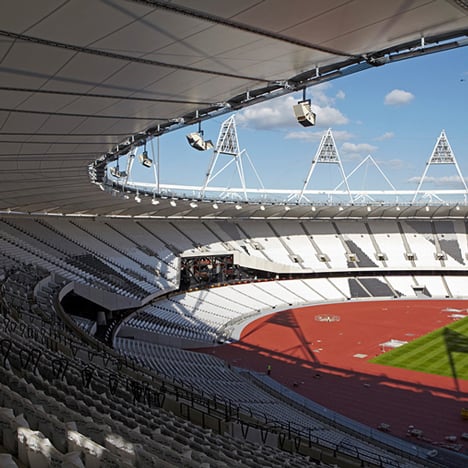
UK overtakes US as nation with strongest cultural influence
News: the UK has become the most powerful nation in the world in terms of cultural influence following the success of the London 2012 Olympics, according to Monocle magazine's annual Soft Power Survey.
Pictured above: London 2012 Olympic Stadium by Populous
The Soft Power Survey ranks nations according to their culture, politics, business, diplomacy and education rather than their financial or military power, drawing on US academic Joseph Nye's notion of applying power by persuasion and attraction rather than coercion or force.
The UK came out on top after a year of international success for its filmmakers, musicians and athletes, while a spectacular Olympic Games played out in venues created by a roll call of renowned architects, with the Olympic cauldron by British designer Thomas Heatherwick and the Olympic torch by BarberOsgerby both grabbing attention for their innovation and style.
"The traditional view of the United Kingdom - bowler hats and umbrellas, royals and high tea - has become tired and clichéd. From sport to design, music to film the UK of the 21st century is rather different than its previous incarnations," says the survey. "The Britain that the country has become was best summed up in the opening ceremony of the Olympic Games."
The US was relegated to second place as Americans turned inwards to focus on the duel for the presidency, while the nation's military reputation was further tarnished following reports of secret drone attacks in Pakistan.
The remaining slots in the top five were filled by Germany, France and Sweden.
While some factors in the survey were calculated empirically, such as the number of foreign students in the country, others were subjective, such as the quality of the country's architecture or company branding.
The survey stated that foreign ministries increasingly understand the value of cultural exports and "diplomatic litheness", as financial clout and military might are no longer considered sufficient to maintain a nation's influence.
Monocle also noted seventh-placed Denmark’s revamped approach to soft power, centred around its design industry. In Hong Kong for example, where Denmark had decided to shut down its consulate, the task of promoting the nation fell to the Innovation Centre, a trade council scheme that helps Danish designers establish themselves there.
“Design is a good way to show Denmark," explained Martine Gram Barbry, executive director of the Innovation Centre in Hong Kong. "This is a new, pioneering way of conducting diplomacy because it’s more innovative than what diplomacy is usually known for."
The Netherlands dropped to 15th in the list as its reputation for exciting design and progressive politics was overtaken by Nordic countries such as Denmark and Finland, where Helsinki has enjoyed its year-long status as World Design Capital.
China fell to 22nd, with the magazine noting the Chinese government's continuing poor treatment of artist Ai Weiwei, who was prevented from travelling outside the country despite his growing global popularity and a successful year which included a collaboration on the Serpentine Gallery pavilion in London with architects Herzog & de Meuron.
See all our stories from the UK »
See all our stories about the Olympics »
See all our stories about Ai Weiwei »